34th Annual ACFE Global Fraud Conference (On-Demand)

Varies by Session
Online
Description
View sessions and earn CPE from the 34th Annual ACFE Global Fraud Conference from the comfort of your home or office any time that's convenient for you.
All sessions are available for ACFE CPE, with 22 presentations eligible for NASBA CPE. You will receive a separate certificate for each session you complete.
Purchase the 34th Annual ACFE Global Fraud Conference (On-Demand):
- Earn up to 30 NASBA CPE
- Access on-demand video recordings of nearly 80 conference sessions
- Have the flexibility to start or stop a course and pick-up right where you left off
Prerequisites
Varies by Session
CPE Information
| CPE Credit: | Up to 30 NASBA Credits |
|---|---|
| NASBA Information: | Fields of Study and NASBA-Approved CPE Credit Vary by Session |
| Advance Preparation: | Varies by Session |
| Last Updated: | June 2023 |
| Delivery Method: | Online |
Credit by Field of Study
| Auditing: | 13.5 CPE ( 2.5 NASBA + 12 ACFE) |
|---|---|
| Business Law: | 3.5 CPE ( 0 NASBA + 3.5 ACFE) |
| Information Technology: | 22.5 CPE ( 7 NASBA + 15.5 ACFE) |
| Management Services: | 1 CPE ( 1 NASBA + 0 ACFE) |
| Specialized Knowledge: | 49 CPE ( 12.5 NASBA + 36.5 ACFE) |
| Behavioral Ethics: | 4.5 CPE ( 4.5 NASBA + 0 ACFE) |
| Business Management and Organization: | 6 CPE ( 0 NASBA + 6 ACFE) |
| Communications and Marketing: | 7.5 CPE ( 1.5 NASBA + 6 ACFE) |
| Personal Development: | 5 CPE ( 1 NASBA + 4 ACFE) |
Sessions
Opening General Session: Crypto Panel Discussion, Sponsored By Diligent - Keynote Session
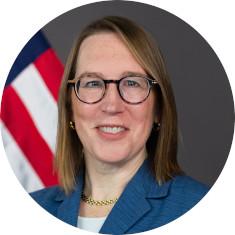
Hester M. Peirce, Andy Greenberg, Sheila Warren, Bruce Dorris, J.D., CFE, CPA, Jo Ling Kent, Ross Pry, CFE
CPE: 1.5 | Ethics CPE: No
Session Level: Overview
Field of Study: Information Technology
Recommended Prerequisite: None
With the digital assets market evolving quickly and growing exponentially worldwide, the need for clarity surrounding compliance and regulation is crucial. This panel will explore knowledge gaps, the threat landscape and what this means for anti-fraud professionals.
Designing And Implementing A Procurement Anti-Corruption Strategy - 2A
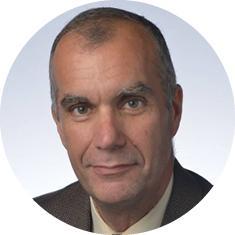
Tom Caulfield, CFE, CIG, CIGI
Procurement Integrity Consulting Services, Chief Operating Officer
CPE: 1.5 | Ethics CPE: Yes
Session Level: Intermediate
Field of Study: Specialized Knowledge
Recommended Prerequisite: Working knowledge of the procurement methods and processes, their vulnerabilities to corruption and fraud, along with a general understanding of how anti-corruption and anti-fraud programs and strategies are designed/implemented.
Public procurement is one of the government activities that is most vulnerable to corruption. As much as $13 trillion annually is estimated to be wasted through inefficient and corrupt or fraudulent procurement practices globally. Procurement corruption risks are exacerbated by the complexity of the contracting processes, the close interaction between public officials and businesses and the multitude of stakeholders. Public procurement is one of the government services that directly supports the operations of nearly every public institution and accounts for some of the largest expenditures of government funds. It is therefore an essential responsibility of government leadership to design and implement an effective national public procurement anti-corruption strategy (NPPACS). Six elements need to be developed, in accordance with the fundamental principles of a nation’s legal system, to complement, strengthen and support the public and private sectors in the prevention, deterrence, detection, investigation and prosecution of procurement corruption. They must be linked to the nation’s overall anti-corruption strategy, integrated into all public procurement activities, tailored to the greatest risks of procurement corruption in the national context and include key stakeholders’ involvement. Although this session targets public procurement corruption at a national level, much of the information can also be used by individual government institutions (such as state procurement agencies, departments, etc.) and larger global private companies.
You Will Learn How To:
- Prevent corruption with an effective procurement system
- Determine key considerations in designing a NPPACS
- Recall the six elements of an effective NPPACS
Practices For Internal Employee Investigations - 2B/8B
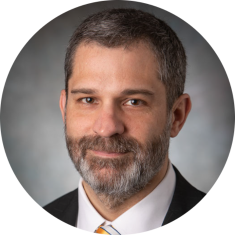
Kenneth Dieffenbach, CFE
Deputy Assistant Inspector General For Investigations, U.S. Department Of Energy
CPE: 1.5 | Ethics CPE: No
Session Level: Basic
Field of Study: Specialized Knowledge
Recommended Prerequisite: None
Fraud examiners need to approach employee investigations within their organization in a methodical, fair and thorough manner. This session will walk through the issues faced when conducting these critically important investigations, including appropriately staffing such efforts, prioritizing investigative steps, coordinating remedies and managing resources. We will address specialized investigative techniques, interviewing, report writing, visualizations and common process pitfalls. We will use real case examples, including the U.S. Department of Justice OIG’s report on the FBI’s handling of the Larry Nassar allegations and the Department of Interior OIG’s report on former Secretary Ryan Zinke to demonstrate the keys to success. Most importantly, we will discuss ways in which fraud examiners can work to help prevent future incidences of employee misconduct.
You Will Learn How To:
- Identify the keys to success for internal employee investigations
- Assess the common pitfalls associated with these types of projects and how to avoid them
- Develop a plan to help improve your organization by preventing future employee misconduct
The Impact Of Chatgpt And Generative Ai On Fraud Prevention And Analytics - 2C/8C
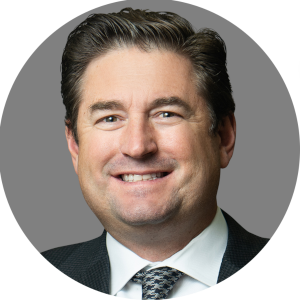
Vincent Walden, CFE, CPA
CEO, Kona AI
CPE: 1.5 | Ethics CPE: No
Session Level: Intermediate
Field of Study: Information Technology
Recommended Prerequisite: Experience using data and data visualization tools in investigations and compliance monitoring
Generative artificial intelligence (AI) tools like Open AI’s ChatGPT, Microsoft’s ChatGPT-powered Bing, and Google’s Bard have a lot of potential for fraud investigators, as well as risks that require a thorough understanding. In the coming months, you will be using AI chatbots integrated with your Tableau or Microsoft PowerBI dashboards to intelligently interact with and direct you to potentially improper vendor payments, customer sales or employee travel and entertainment expenses. It works surprisingly well! In this session, we will describe several use cases for successful and secure generative AI applications available to anti-fraud, internal audit and compliance professionals to evaluate both unstructured (text) and structured (accounting) data. For those anti-fraud professionals who use data and data visualization tools in their investigations and proactive monitoring activities, this is a must-see session.
You Will Learn How To:
- Identify the capabilities of artificial intelligence tools such as ChatGPT, Bing AI, and Bard
- Recognize the impact of artificial intelligence tools on investigations, audits and compliance
- Evaluate structured and unstructured data using AI applications
Bootstrapping Ethics - 2D/8D

Rupert Evill, CFE
Founder, Ethics Insight PTE, LTD
The scope of risk, ethics and compliance is expanding — what was once restricted to internal wrongdoings now extends across value chains and physical, virtual and financial realms. Where do you start? It’s a question often complicated by limited resources (time, people, budget). How do you make risk relevant and get people to care? This is a frequent challenge, especially in organizations built on cultures of “don’t bring me problems, bring me solutions.” We’ll address these questions using simulated crises for an interactive session.
You Will Learn How To:
- Create and socialize 3D and 360 assessments quickly, covering external controls and cultural risk factors while minimizing the friction and pain for your internal stakeholders
- Build content that resonates with regulators by borrowing and stealing (ethically!) from marketing, behavioral science and product design
- Apply the power of stories (and raising kids) to connect with (sometimes hostile) internal stakeholders
![]() This session provides ACFE ethics credit, which counts toward the ACFE's annual ethics CPE requirement for CFEs. To learn more about the ethics CPE requirement for CFEs, please visit ACFE.com/EthicsCPE.
This session provides ACFE ethics credit, which counts toward the ACFE's annual ethics CPE requirement for CFEs. To learn more about the ethics CPE requirement for CFEs, please visit ACFE.com/EthicsCPE.
Changing The Audit Landscape With Advances In Analytics And Visualizations, Sponsored By Oversight - 2E

Nathanael L'Heureux
Chief Client Officer, Oversight
During this session, we will discuss the power of using emerging technology, such as machine learning, to more accurately identify risks while providing enhanced analytics and visualizations that reveal significant audit trends and outcomes. These advances in technology are changing the audit landscape to improve accuracy, efficiency and loss prevention outcomes for anti-fraud professionals and their organizations.
You Will Learn How To:
- Determine the benefits of machine learning in delivering more accurate and timely audit results
- Glean real-time insights from curated data models and comparative benchmarks to reduce fraud and risk
- Recognize how audit process automation improves outcomes for compliance, efficiency and loss prevention
Digital Fingerprints: Using Data To Enhance Fraud Investigations - 2F/8F
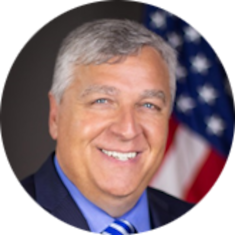
Chris Covington, CFE
Joint Operations Center Manager, Pandemic Response Accountability Committee
In today’s data-rich environment, investigators should leverage a multitude of sources to identify and combat fraud. This session will focus on fraud indicators associated with organized criminal groups, including the use of questionable physical locations, IP addresses, emails and phone numbers. The discussion will also include a variety of related topics, including the use of cryptocurrency, identity theft and manufactured documents in criminal enterprises. Case examples will be provided that illustrate real-world applications for each technique.
You Will Learn How To:
- Recognize three fraud indicators that suggest a criminal ring is involved
- Determine how fraudsters use cryptocurrency to launder money
- Identify how proactive data analysis can prevent fraud
How To Prevent Cultural And Gender Bias From Derailing Your Interviews - 2I

Ruben Naiker, CFE
Forensic Investigator
CPE: 1.5 | Ethics CPE: Yes
Session Level: Advanced
Field of Study: Communications and Marketing
Recommended Prerequisite: Knowledge of and experience with the fundamentals of interviewing. An awareness of how cultural and gender nuances affect human behavior and an appreciation that different cultures may react differently for the same situation.
The global workplace allows people from different regions and cultures to work together seamlessly. This can be a challenge when trying to effectively interpret deceptive behavior during interviews. It is therefore crucial to understand, harness and leverage opportunities to guide interviews with a view to identifying deception. Different cultural and individual characteristics must be understood and not misinterpreted in the global context. Equally, different gender traits should not be misconstrued as deception. What may appear to be deceptive behavior in one culture may not be in another, more conservative culture. Further, recent empirical evidence has demonstrated that previously held views on deceptive behavior were incorrect. Interviewers therefore need to be intrinsically aware of these factors and not allow biases and cultural and social idiosyncrasies to be construed as deceptive traits or indicators of deception. This session will discuss innovative strategies, methodologies and tools to guide and redirect interviews to obtain the information most pertinent to the investigation process. These new skills and instructional strategies will assist professionals in moving beyond generic, and sometimes monocultural, views of traditional investigation strategies.
You Will Learn How To:
- Identify the core principles of cultural, gender and social traits
- Examine and contextualize cultural differences to support enhanced interviewing techniques
- Employ techniques to obtain evidence for successful prosecutions and avoid pitfalls
Driving Change By Breaking Down Fraud Events For Non-Fraud Professionals - 2J
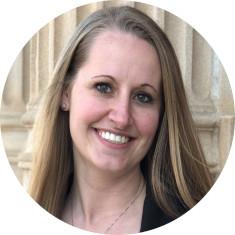
Amanda Compton, CFE
Director, Integrated Account Protection, Arvest Bank
CPE: 1.5 | Ethics CPE: No
Session Level: Intermediate
Field of Study: Specialized Knowledge
Recommended Prerequisite: Knowledge and experience with fraud investigation and mitigation.
Fraud is a growing challenge, but many non-fraud professionals still have a “this won’t happen to us” mindset, believe that one simple fix will stop the fraud or have not been able to carve out time to see how far-reaching fraud is. This puts greater responsibility on anti-fraud professionals to create awareness in a simplified, retainable and connectable way. A common conversation in the anti-fraud community is that leadership does not allocate the necessary resources to properly prevent, detect and mitigate fraud. Imagine being able to create formal, easily digestible communication that provides insight into fraud risks and creates the awareness and support needed to future-proof the company against fraud. For this session, bring a real-life fraud example that you would like to communicate in a way that will spawn change, and we will work together to create a consistent, simple tool that can be duplicated for other cases and used to create the awareness and understanding needed to drive change.
You Will Learn How To:
- Implement a communication concept to change the “it will never happen to us” mindset and shed light on how persistent fraudsters really are
- Connect with non-fraud professionals who influence the changes needed to prevent fraud
- Create open collaboration to resolve a problem
- Communicate strategic fraud awareness concepts to foster an anti-fraud mindset at your company
- Develop an actionable communication tool that will help you hit the ground running
General Session: Dr. David Lieberman - Keynote Session

Dr. David Lieberman, Jo Ling Kent
Renowned Psychotherapist And Author
CPE: 1.0 | Ethics CPE: No
Session Level: Overview
Field of Study: Specialized Knowledge
Recommended Prerequisite: None
72 Hours To Get It Right, Sponsored By Forvis - 4A
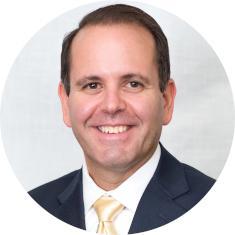
Erik Lioy, CFE, CPA, Cffzachary Powers, Pat Hoan, CFE, CPA
Forvis
CPE: 1.5 | Ethics CPE: No
Session Level: Basic
Field of Study: Specialized Knowledge
Recommended Prerequisite: None
Through a case study and personal experiences, a three-party panel of FORVIS professionals will explore failed or compromised investigations with the goal of understanding why they failed. Their presentation will show that the seeds of failure are often sowed in the first 72 hours of an investigation. They will focus on themes and practical recommendations that the audience can use to prevent future mishaps, including proper planning, early identification of conflicts of interest and contamination of evidence. They will refer to real-world examples ripped from the headlines.
You Will Learn How To:
- Recognize the importance of proper planning and methodologies to implement before an investigation
- Identify critical issues regarding investigative independence
- Address potential issues at the start of an investigation and those that might arise when an investigation is underway
- Identify common issues that lead to contamination of evidence, especially electronically stored information, during investigations
What Went Wrong? Common Mistakes Made In Interviews And How To Avoid Them - 4B/8J

Bret Hood, CFE
Former U.S. FBI Special Agent
CPE: 1.5 | Ethics CPE: No
Session Level: Advanced
Field of Study: Communications and Marketing
Recommended Prerequisite: Basic knowledge of the aspects of interviewing in a fraud examination.
Interviewing is one of the most vital skills for fraud examiners, yet even the most experienced interviewers make preventable mistakes. A poorly executed interview can impact a fraud examination in many ways, including damaged credibility, lost information and, in the worst cases, lost or dismissed prosecutions or lawsuits. In this interactive session, participants will learn about the most common and most dangerous interviewing mistakes while also learning about strategies to overcome these obstacles.
You Will Learn How To:
- Evaluate the effect of unconscious biases on the interviewing process
- Develop methods to increase focus when interviewing witnesses and suspects
- Leverage statement analysis techniques to enhance interviewing techniques
A $12.5 Million Indictment, A $3 Million Loss: What Went Wrong? - 4C

Tiffany Couch, CFE, CPA/CFF
CEO and Founder, Acuity Forensics
CPE: 1.5 | Ethics CPE: No
Session Level: Advanced
Field of Study: Specialized Knowledge
Recommended Prerequisite: Investigative knowledge - Experienced forensic accountant and/or auditor and/or investigator
The government alleged a $12.5 million loss, but this forensic accountant found only a $2.7 million provable loss. What went wrong with the government’s investigation? What steps were necessary for the forensic accountant to unravel the case? What evidentiary and other roadblocks were faced by the forensic accountant during the investigation? What key documents and witness information changed the case — and the outcome — for the defendant?
You Will Learn How To:
- Recognize the importance of professional skepticism when reading an indictment or information
- Assemble the evidence necessary to prove or refute a case
- Prepare to present a succinct and factual case when there are hundreds of thousands of documents and lines of data to sift through
- Formulate a plan to deal with resource constraints during an investigation
Are Technology Ethics Broken? - 4D
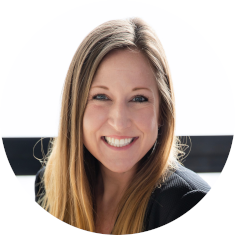
Amanda Erven, CFE, CIA, CPA
Audit, Consulting, Education. LLC., President
CPE: 1.5 | Ethics CPE: Yes
Session Level: Basic
Field of Study: Behavioral Ethics
Recommended Prerequisite: None
You’ve probably heard their names: Mark Zuckerberg, Elizabeth Holmes, Sam Bankman-Fried … but do you know their full stories? Brace yourself, because we are going to take you on the roller coaster of events in big tech and fintech in the past few years. Then, hold on tight because the ride will keep going from there. We will discuss optimization, power, algorithms and privacy — four huge components of tech ethics. We will demystify them so you can decide for yourself if technology ethics are currently broken.
You Will Learn How To:
- Dissect recent ethical failures in Silicon Valley (and beyond) leading to declining trust in big tech and fintech
- Realize how the drive for optimization, power, algorithms and privacy is leading to ethical issues and fraud
- Appreciate the importance of transparency and ethical testing in new technologies
- Recognize the need for regulations and strong codes of professional ethics in technology
Digitally Enhanced Investment Fraud: New Rules For An Old Game - 4E

Richard Yancey
Analyst, Firebird AST / USSS
CPE: 1.5 | Ethics CPE: No
Session Level: Overview
Field of Study: Information Technology
Recommended Prerequisite: None
In this session, we will discuss various forms of investment fraud, including real-world cases, and how these techniques have been modified with the invention of cryptocurrency and blockchain technology. We will include some concepts and resources to assist those investigating investment fraud in the digital age.
You Will Learn How To:
- Identify how modern digital tools have contributed to a dramatic increase in financial losses from investment fraud
- Determine how the decentralization of technology and finance will further accelerate the growth of investment fraud
- Recall the recommendations, investigative tools and enforcement actions that government agencies are using to combat digitally enhanced investment fraud
Fraud Is A Four-Letter Word: How Text Mining Can Be Used To Detect Fraud - 4F

Lacey Keller
Co-Founder, MK Analytics, INC.
CPE: 1.5 | Ethics CPE: No
Session Level: Intermediate
Field of Study: Information Technology
Recommended Prerequisite: Basic understanding of statistics. Knowledge of analytics and predictive modeling would be helpful (but not needed).
Through a novel blend of linguistics and statistics, this presentation will assess the use of text in predicting fraud. It will walk through different text assessment tools including web and PDF scraping, image recognition, topic modeling, term frequency-inverse document frequency (tf-idf), sentiment analysis, and variable creation for text-inclusive predictive models.
You Will Learn How To:
- Recognize the role of words and language in linguistics and how statistics (and machine learning) can be leveraged to analyze text
- Identify different text analysis techniques and their roles in the broader text mining and analysis field
- Apply knowledge and insight to predictive modeling techniques and statistics methods
Strategizing And Organizing A Large-Scale Investigation - 4I

Paulina Davis, J.D., CFE
Special Investigations Unit Manager, United Healthcare
CPE: 1.5 | Ethics CPE: No
Session Level: Basic
Field of Study: Specialized Knowledge
Recommended Prerequisite: None
An investigation can become very intriguing when potential collusion relationships are detected and the investigator realizes the case is bigger than anyone imagined. But when you start having multiple entities or suspects involved, documenting evidence and keeping track of the connections can get overwhelming very quickly. Working a large-scale investigation as a team can result in issues with coordination of duties, organization of records and documentation across the team. The presenter will discuss how they have successfully strategized and organized large-scale investigations involving multiple suspects and entities using case studies from the healthcare industry. This presentation will provide tips and examples to help the investigator address topics such as how to “attack” a large-scale investigation as a team or an individual, pitfalls to avoid when working a large-scale investigation, tools to utilize to stay organized and quickly identify connections, organizing case file evidence and packaging large-scale cases for referral to law enforcement.
You Will Learn How To:
- Implement simple and effective ways to stay organized for large-scale investigations
- Determine ways to organize materials associated with large-scale investigations to properly demonstrate connections between suspects or entities
- Apply tools to educate law enforcement about the details of an investigation quickly and efficiently
Evolution Of Fraud In The Global Financial Market - 4J
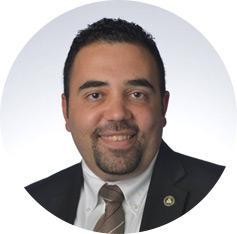
Iyad Mourtada, CFE, CIA, CRMA
Managing Director, OpenThinking Academy
CPE: 1.5 | Ethics CPE: No
Session Level: Intermediate
Field of Study: Auditing
Recommended Prerequisite: Basic knowledge of accounting and auditing.
Capital financial market effectiveness is based on trust between stakeholders and executive directors. Market regulators and government oversight authorities have created many regulations, laws and policies to balance the protection of shareholders against the ability of corporations to obtain investment capital. However, over the last 25 years, the global financial markets have experienced many scandals, fraud and corruption cases on top of the stock market bubble and financial crisis. In this session, we will highlight the key fraud schemes behind malpractice, misconduct and manipulation and explore how regulators and examiners uncovered, investigated and prosecuted white-collar crimes.
You Will Learn How To:
- Identify the role of corporate culture and executive compensation in manipulating financial reporting
- Recognize malfeasance and corruption in publicly traded firms and financial institutions
- Recall fraudrepreneur, unicorn, cryptocurrency, NFT and private equity fraud definitions
- Examine whistleblowing incentives, protections and laws in the financial market
- Develop best practices for identifying, preventing and prosecuting white-collar crime related to the financial market
After Covid: Targeting Your Anti-Fraud Efforts In The New Threat Environment - 5A/11J

Linda Miller
CEO, Audient Group, LLC
CPE: 1.5 | Ethics CPE: No
Session Level: Intermediate
Field of Study: Specialized Knowledge
Recommended Prerequisite: Understanding of fraud risk assessment and management.
COVID-19 was the equivalent of flipping the chessboard when it comes to fraud threats. Fraud risk assessment has always been more art than science, but in the post-COVID-19 world, being agile in considering emerging fraud threats has never been more important. The remote work environment created new organizational challenges that have a direct impact on the fraud risk landscape. The influx of federal dollars brought out fraud actors of varying levels of sophistication and attracted a new generation of fraudsters. Meanwhile, the “fraud as a service” marketplace delivered a brand new suite of tools for them to use. Now organizations must contend with this new threat environment, including more personal data available through data breaches and much more sophisticated social engineering schemes driving identity theft and false claims risks, among others, to new heights. At the same time, data analytics tools to prevent and detect fraud have proliferated. Many organizations are tempted to buy the latest, most innovative data analytics tool to fight fraud. But with limited budgets and a seemingly endless array of threats, how do you know you’re buying the tool that will have the biggest impact on your organization’s fraud risks? In this everchanging environment, a comprehensive fraud risk assessment has never been more necessary. This session will explore emerging fraud risks and how to consider them in a holistic fraud risk assessment. Whether you have developed a robust fraud risk assessment process or are just beginning to comprehensively assess your fraud risks, this session will provide tools and insights to help you navigate the post-COVID-19 fraud landscape and effectively target your most pressing fraud risks.
You Will Learn How To:
- Examine the fraud threats that have emerged in the last three years
- Identify new techniques for assessing emerging fraud risks in the context of your organization
- Determine the linkage between investment in fraud analytics and the assessment and prioritization of fraud risks for maximum impact
Investigation Guidelines: A Practical Tool For Investigators - 5B
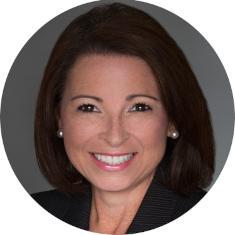
Leah Lane, CFE
Director, Sunhawk Consulting
CPE: 1.5 | Ethics CPE: No
Session Level: Overview
Field of Study: Specialized Knowledge
Recommended Prerequisite: None
Investigation guidelines that are well written can ensure that your organizational policies and procedures are followed and promote consistency within your investigation program or across your organization. This session will discuss how having a standardized investigative process can reduce risk, how to create investigation guidelines that are an asset to investigators and how to audit them to ensure that they are effective.
You Will Learn How To:
- Recognize why having investigation guidelines is important
- Recall elements that should be included in investigation guidelines
- Identify how to audit your investigation guidelines to ensure their effectiveness
Fintech And Fraud — Fact, Fiction And Folklore - 5C

Steve Lenderman, CFE
Senior Vice President, Fraud Prevention And Investigations BM Technologies
CPE: 1.5 | Ethics CPE: No
Session Level: Basic
Field of Study: Business Management and Organization
Recommended Prerequisite: None
This session will explore the truths and mysteries that surround fintech and fraud. Join us for a discussion on the evolution of fintech and why it has become synonymous with fraud. While this is not reality, it is perception, but perception often is reality. We will review why and how fintech came to be and why fintech companies have been targeted by bad actors. We will also investigate current and emerging fraud trends and discuss best practices in fraud prevention and detection. Beyond the truths, we will dispel fiction and folklore about these products.
You Will Learn How To:
- Recognize the difference between fintech and traditional banking
- Discriminate between the types of fraud that target fintech versus traditional financial institutions
- Employ strategies to prevent and detect fintech fraud
- Identify emerging trends in fintech and fraud
Panel: Responsible AI — Learn How This Can Be Your Competitive Advantage, Sponsored By SAS - 5D

Stu Bradley, Kimberly Nevala, Constantine Boyadjiev, CFE, Lacey Keller
SAS
CPE: 1.5 | Ethics CPE: Yes
Session Level: Basic
Field of Study: Information Technology
Recommended Prerequisite: None
Many organizations struggle with realizing maximum value from analytic investments, which is often referred to as the ‘Last Mile’ problem. Business and IT leaders are challenged with taking innovation in controlled, lab-based environments and deploying into run time operations – where the value is realized. With the market, and legislation, focused on Responsible Innovation and Responsible AI, the obstacles to achieving return on analytic investments may become even greater. Learn from Responsible AI thought leaders and a panel of your peers on how businesses are capitalizing on AI initiatives while ensuring the analytics they use are trustworthy.
You Will Learn How To:
- Recognize the importance of the Responsible AI approach to decisions
- Identify business areas that Responsible AI can be applied
- Determine how businesses are capitalizing on analytics and AI for more trustworthy and defendable decisions
Digital Alibis: Can You Extract The Truth From A Digital Mirage? - 5E

Walt Manning, CFE
CEO, Techno-Crime Institute
CPE: 1.5 | Ethics CPE: No
Session Level: Intermediate
Field of Study: Information Technology
Recommended Prerequisite: Familiarity with digital evidence
Today, all of us leave a digital footprint. Telephone calls, internet activities, text messages and emails leave tracks. Cloud services and connected devices also collect a growing amount of information about users. Mobile devices and the apps you use add even more traces. But what if a fraudster could use technology to camouflage or obscure these digital tracks? Is it feasible to use technology to make it impossible to know where your suspect was and what they’ve done? Could these “digital alibis” be used to create reasonable doubt in a criminal case? How much time could you waste during an investigation researching these digital mirages to determine what’s true and what’s false? This session will provide a hypothetical case study where a fraud suspect uses technology to plant false clues that hide where they’ve been and what they’ve done to confuse fraud examiners. Tools and techniques are readily available to techno-criminals that could help them to cover their tracks and make your investigations more challenging. Will you be able to differentiate the fake clues from the real ones to find the truth? Or will the fraudster be able to use their “digital alibi” to escape justice?
You Will Learn How To:
- Identify how online data can be distorted to falsify activities
- Recognize that device data can be altered to change dates and times for documents, email, internet activities and more
- Recall methods that can be used to manipulate device identification to hide usage information
- Identify encrypted communications apps and services that can be used to hide evidence
- Determine ways encrypted cloud services and data storage can be used to make finding evidence more challenging
Orchestrating Investigators And Auditors For Maximum Return On Investment - 5F

Kim Benoit, CFE, CPA, Jamease Todd, CFE, Tekla Colon, CFE
NASA Office of Inspector General
CPE: 1.5 | Ethics CPE: No
Session Level: Intermediate
Field of Study: Business Management and Organization
Recommended Prerequisite: Basic understanding of the functions of an investigative unit and an audit department. Participants should be familiar with investigative outcomes (referrals, prosecutions) and audit outcomes (reports, memos)
Investigators and auditors traditionally have different lenses through which they view their work — investigators focus on the subject, while auditors focus on data and artifacts. Additionally, investigators place a high degree of weight on testimonial evidence, whereas in the auditing field, testimonial evidence is considered the least reliable. Getting investigators and auditors to understand each other’s view is critical to ensuring that the organization as a whole achieves maximum benefit. In this session, we will discuss the different lenses through which investigators and auditors view the world, review case studies from my professional experience and discuss steps that leaders can take to ensure that the investigative and audit functions coordinate as appropriate.
You Will Learn How To:
- Relate the work performed by the audit and investigative functions to ensure that instances of fraud are prosecuted
- Identify the controls recommended to minimize opportunities for fraud in the future
- Develop management approaches for ensuring that different units work together toward a single mission
- Recognize areas for potential collaboration between auditors and investigators
- Design data analytics to implement one set of metrics that serves multiple purposes for the organization
Health Care Fraud And Liens: Challenges Of Reasonable Billed Amount Calculation - 5I
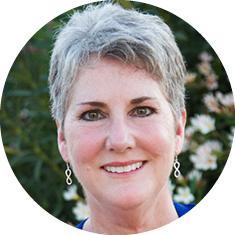
Jacqueline Bloink, CFE, MBA, RHIA
Professor, University of Arizona
CPE: 1.5 | Ethics CPE: No
Session Level: Basic
Field of Study: Specialized Knowledge
Recommended Prerequisite: None
Injured people often seek health care on a lien in lieu of using their health insurance coverage. Health care bills need to be evaluated to assess full billed amount, geographical area and time period. A data source needs to be used to compare the lien amount with what is reasonable compared to other health care provider full-billed amounts in the same year and geographical area. Often, services on a lien are unbundled, which results in double-billing to the patient or party that is paying the lien (e.g., personal injury insurance carrier). Lien bills are often much higher than other billed services, and lien providers often refer patients to surgical centers they own, creating ethical issues and conflicts of interest. This session will discuss billing schemes frequently recognized in lien cases and data sources and tools to identify billed services that should not be billed together (i.e., unbundling).
You Will Learn How To:
- Identify what a lien is and discuss various state laws regarding services billed on a lien
- Recognize common billing schemes used in health care lien cases
- Access professionally and publicly recognized resources that are available to investigators of medical billing schemes
- Differentiate between data sources that contain allowed amounts versus billed amounts
- Recall the ethics and conflicts of interest of health care provider ownership of surgical facilities where they refer patients for treatment
- Evaluate the collateral source rule and how it dictates how lien cases are evaluated in each state
Compliance Auditing: How To Identify Risks And Improve Your Compliance Program - 5J

Brian Frasier, CFE
Director of Compliance Audit, RPM International Inc.
CPE: 1.5 | Ethics CPE: No
Session Level: Intermediate
Field of Study: Auditing
Recommended Prerequisite: Knowledge and experience with the fundamentals of auditing, compliance programs, organizational risks and fraud investigations.
A compliance audit is designed to test a company’s ability to meet their business objectives in accordance with their code of conduct, compliance program standards, and policies and procedures that identify risks and provide recommendations to make improvements to mitigate those risks. A compliance audit is a formal process that uses standard internal audit methods, data analytics, risk assessments and employee inquiries to identify potential operational and financial risks in a proactive, collaborative manner with Legal, Compliance, HR, Finance and Operational departments.
You Will Learn How To:
- Identify the core principles of a compliance audit and how it helps measure the effectiveness of a compliance program
- Examine the general overview of a compliance audit plan, scope and reporting
- Recognize the valuable outcomes and objectives that can result from a compliance audit
The Role of Internal Controls in the Fight Against Fraud - 6A
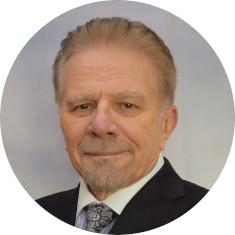
John Tonsick, CFE, CPA
Founder, Fraud Solutions
CPE: 1 | Ethics CPE: No
Session Level: Intermediate
Field of Study: Auditing
Recommended Prerequisite: Attendees should be familiar with basic internal control concepts and fraud investigation techniques.
Donald Cressey’s Fraud Triangle tells us that opportunity is a critical factor in every fraud. Weak internal controls tempt perpetrators with inviting opportunities. Just as burglars “case” a home or business before breaking in, fraudsters search out internal control weaknesses they can exploit to perpetrate and conceal their crimes. Fraud examiners with a working knowledge of internal controls have a tremendous advantage. We will discuss internal control weaknesses that frequently lead to fraud and use case studies to demonstrate how perpetrators used them. We will also discuss how fraud examiners can use their knowledge of internal controls to prevent fraud, find it faster when it occurs and make their investigations more efficient and productive.
You Will Learn How To:
- Explore the state of internal controls in today’s business environment and learn why they so often fail
- Recognize the control weaknesses that commonly lead to fraud, including the “Terminal Two”
- Apply your knowledge of internal controls to sharpen the focus of fraud investigations and make them more productive
- Identify ways to improve fraud prevention and detect it sooner when it happens
Conducting Cross-border Investigations - 6B

Patricio Munoz, CFE
Directory, Advisory KPMG LLP
CPE: 1 | Ethics CPE: No
Session Level: Overview
Field of Study: Specialized Knowledge
Recommended Prerequisite: None
Conducting investigations that traverse countries, cultural norms and regulatory environments poses unique risks and opportunities for investigators. Investigations of this type require special consideration of language barriers such as local dialects and ways of speaking, sourcing of corporate and individual information, considerations of local laws and regulations as they relate to data privacy, and interview as well as review of digital data obtained. In this session, you will learn how to identify best practices when conducting interviews and reviewing digital data in different languages, employ methods to collect open-source information available in different countries, interpret cultural norms and expectations to communicate better with international stakeholders as well as potential subjects and witnesses to an investigation.
You Will Learn How To:
- Identify best practices when conducting interviews and reviewing digital data in different languages
- Employ methods to collect open-source information available in different countries
- Interpret cultural norms and expectations to communicate better with international stakeholders, potential subjects and witnesses to an investigation
Managing Teams Effectively in Hybrid Environments - 6D/12J
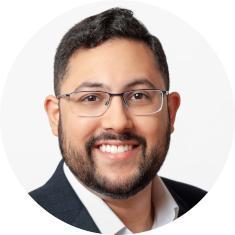
Aditya Yerramilli, CFE, CPA, CGMA
Lead—Controls & Monitoring, Office of Compliance & Integrity (OCI) Google Inc.
CPE: 1 | Ethics CPE: No
Session Level: Intermediate
Field of Study: Personal Development
Recommended Prerequisite: Participants have knowledge and experience in people management and currently serve in a capacity that involves managing people (whether in-person, hybrid or remote).
In the past three years, the landscape of how business is conducted has shifted and introduced numerous challenges for supervisors in how they manage teams. Further, at an individual level, people have had to navigate numerous personal challenges and circumstances. Managers must consider these dynamics to effectively lead their teams and drive productivity in this challenging environment. This session will explore research on what makes teams effective and how to apply these concepts in our distributed work environment.
You Will Learn How To:
- Navigate the research and key principles around team effectiveness
- Recognize the impact and challenges of the current work landscape
- Recall approaches to apply these concepts in driving improved team management
Blurred Lines: Conducting Criminal, Civil and Administrative Investigations - 6E
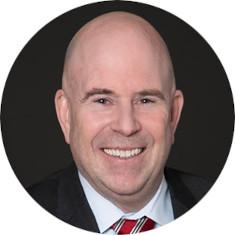
John Curry, J.D., CFE
CPE: 1 | Ethics CPE: No
Session Level: Intermediate
Field of Study: Business Law
Recommended Prerequisite: Knowledge of and experience with the fundamentals of investigations
Often, when investigations are conducted in the criminal, civil and administrative arenas, they are performed concurrently or involve the same targets and fact pattern. This presentation will dissect some specific cases where the outcomes were impacted by the direction of the investigation and coordination and communication between the various parties and agencies. The goal is to become aware of some of the investigative pitfalls while also providing some best practices to be utilized during investigations. The topics covered during the presentation include identifying the different processes and the burden of proof required under each type of investigation. The presentation will also include a breakdown of how each type of investigation can be impacted by the recent court holdings in regard to the Fourth and Fifth Amendments.
You Will Learn How To:
- Determine the differences between criminal, civil and administrative cases
- Recognize the pros and cons of conducting an investigation for criminal, civil and administrative cases
- Identify best investigative practices for criminal, civil and administrative cases and the dangers of failing to follow proper procedures for each
- Navigate recent cases with a special emphasis on the Fourth and Fifth Amendments (search warrants, the exclusionary rule, right against self-incrimination, issuing of Miranda rights and the “fruit of the poisonous tree” doctrine)
- Recognize the importance of coordination and communication and of avoiding collusion
Applying Machine Learning to Build Actionable Fraud Investigations - 6F

Douglas Rahden
Data Science Senior Manager, Evernorth (CIGNA Group)
CPE: 1 | Ethics CPE: No
Session Level: Intermediate
Field of Study: Information Technology
Recommended Prerequisite: Basic understanding of the role of data analytics in identifying fraud cases and referrals
The application of advanced analytics, data science and machine learning methods to identify fraud cases can seem overwhelming to new analysts, investigators and other investigative staff. This session will bridge the world of fraud investigations with machine learning concepts that can help identify actionable fraud cases. In addition to highlighting the importance of communication and collaboration between data scientists, analysts and investigators, this session will provide a straightforward breakdown of the application of machine learning to identify fraud cases that otherwise would be difficult or impossible to detect. This primer will focus on the use of free, open-source and widely available tools. Attendees will gain a basic understanding of machine learning in the fraud context. Analysts may learn new methods to proactively identify fraud referrals. Investigators will better understand the methods used and more easily interpret machine learning output from advanced analysts and data scientists.
You Will Learn How To:
- Interpret fraud leads generated by machine learning
- Apply additional tools for fraud detection and a better understanding of machine learning
- Assess methods for and the importance of collaboration among analysts, data scientists and investigative staff
E-commerce Fraud Trends: Fraudster Profiles, Red Flags, and Prevention - 6I
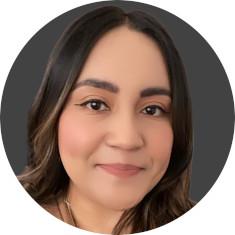
Erika Milena Saravia Ayala, CFE
Associate Director Global Risks & Investigations Practice, Forensic & Litigation, FTI Consulting
CPE: 1 | Ethics CPE: No
Session Level: Overview
Field of Study: Specialized Knowledge
Recommended Prerequisite: None
Due to an increased focus on e-commerce in recent years, companies are now working hard to implement a seamless shopping experience. New payment methods make it simple to order anything we want online—and we want it fast! However, there are plenty of fraudsters looking to exploit the boom in e-commerce and the developing payment channels. This session will help anti-fraud professionals mitigate the risks of e-commerce fraud by covering typical fraudster profiles, red flags of e-commerce fraud and prevention solutions.
You Will Learn How To:
- Recall the basic concepts of e-commerce fraud
- Recognize the profile of an online fraudster
- Identify red flags in online transactions and apply available fraud-prevention solutions
Conflicts of Interest: Mitigating Risk and Investigation Best Practices - 6J

Stephanie L. Marchand (Bernard), CFE, CPA
Director, Marcum LLP
CPE: 1 | Ethics CPE: Yes
Session Level: Basic
Field of Study: Specialized Knowledge
Recommended Prerequisite: None
It is not uncommon for organizations to engage in related-party transactions in the normal course of business. This session will address some of the ways that organizations can identify and address risks related to these types of transactions. When these risks are not appropriately addressed or when there is an allegation made, an investigation into potential conflicts of interest may need to occur. There are best practices and considerations for performing these types of investigations, many of which differ from investigations into allegations of asset misappropriation or other types of fraud.
You Will Learn How To:
- Categorize transactions as being related-party or having a potential conflict of interest
- Identify controls and prevention techniques used to address the risks of related-party transactions
- Contrast allowable related-party transactions and inappropriate conflicts of interest
- Apply best practices in conflict-of-interest investigations
General Session: Miranda Patrucic, James Lee Hernandez and Brian Lazarte, Sponsored by Nice Actimize - Keynote Session

Miranda Patrucic, James Lee Hernandez, Brian Lazarte and Jo Ling Kent
CPE: 1.5 | Ethics CPE: No
Session Level: Overview
Field of Study: Specialized Knowledge
Recommended Prerequisite: None
Scams Playbook: Detect, Deter, and Prevent, Sponsored by Nice Actimize - 8A

Robert Rendell, CFE
Global Head of Fraud Market Strategy and Fraud Prevention, Subject Matter Expert Nice Actimize
CPE: 1.5 | Ethics CPE: No
Session Level: Overview
Field of Study: Information Technology
Recommended Prerequisite: None
Online banking has been a phenomenal success in the past ten years, with consumers embracing digital banking and payments for their speed and convenience. Relying on the societal change to digital interactions, criminals have exploited this shift and focused their energy on online payment scams, often using social engineering. Scams, social engineering and authorized fraud threaten the banking system and customer trust in financial institutions to protect them and their assets. Financial institutions must innovate and tap into technologies, such as artificial intelligence and machine learning, to stay ahead of fraudsters and protect their customers and organization. Rob Rendell from NICE Actimize will discuss the scale and challenges of authorized fraud, the role money mules play, and how to address these issues with data analytics and fraud strategies.
You Will Learn How To:
- Reduce the clear and present danger authorized fraud poses to the banking environment
- Determine the scale of the challenge, including tactics fraudsters are using and where the liability lies
- Analyze additional fraud signals, including behavioral biometrics and mobile data intelligence blended with machine learning and AI models
- Improve upstream fraud prevention strategies such as vulnerable customer profiling and early identification of money mules
- Determine how economic and technological developments might change the fraud risk landscape
Fraud Technology and the Paradox of Choice, Sponsored by Guidehouse - 8E
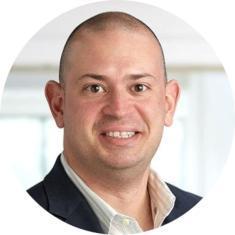
James Ruotolo, CFE and Brian Killeen
Director, Guidehouse
CPE: 1.5 | Ethics CPE: No
Session Level: Basic
Field of Study: Information Technology
Recommended Prerequisite: None
The fraud technology marketplace is a wondrous and magical place, full of promises to solve your hardest fraud detection challenges. With so many vendors and technologies to choose from, the options can be overwhelming. How do you figure out what you really need, sort through the marketing-speak and figure out which solutions are the best fit for your organization? This session will guide you through the steps to confidently navigate your next fraud technology project and share stories from those who have recently been down the same path.
You Will Learn How To:
- Identify the requirements for a fraud technology solution
- Differentiate among the various types of solutions and determine how to apply them
- Recognize the steps necessary to run a successful procurement cycle
- Identify the key tasks involved in implementing and managing a solution
- Establish targeted goals to ensure successful performance monitoring
A Collaborative Effort to Combating Fraud and Money Laundering Risks - 8I

Ryan Schwoebel, CFE
Reed Research Investigations, CEO
CPE: 1.5 | Ethics CPE: No
Session Level: Basic
Field of Study: Specialized Knowledge
Recommended Prerequisite: None
Anti-fraud and anti-money laundering processes within financial institutions are often siloed, but the two fields have much connective tissue. Combining resources and efforts for these financial crime risks can improve efficiencies, but it can also introduce some challenges. This presentation will review all perspectives — the pluses and the minuses — to help you consider whether a combined fraud and AML (FrAML) approach may be the right fit for your institution.
You Will Learn How To:
- Recognize the similarities and differences between anti-fraud and anti-money laundering processes within a financial institution
- Discern how a FrAML approach could provide added efficiencies to anti-fraud and AML strategies
- Interpret a regulatory perspective on the FrAML approach
General Session: Xavier Justo and Michael E. Horowitz - General Session

Xavier Justo and Michael E. Horowitz and Jo Ling Kent
CPE: 1 | Ethics CPE: Yes
Session Level: Overview
Field of Study: Specialized Knowledge
Recommended Prerequisite: None
Remote Control — Mitigating Fraud in the Hybrid Work Environment - 10A/14A

Michael Schidlow, CFE
Owner, Scienter Group LLC
CPE: 1.5 | Ethics CPE: No
Session Level: Advanced
Field of Study: Specialized Knowledge
Recommended Prerequisite: Working knowledge of internal risk management. Foundational experience in conducting risk assessments. Operational awareness of internal controls for risk mitigation.
Many organizations have treated the temporary work conditions brought on by the pandemic as an opportunity to revise their overall working conditions. Companies are shifting from full-time office attendance to hybrid or even eliminating office space altogether. By contrast, other businesses have opted for a full return-to-office posture, eliminating the accommodations that were made during the peak of the pandemic. Without proper evidence- and risk-based planning, these organizations will have thrown themselves into a purgatory where neither their lockdown nor return-to-office fraud risk management frameworks apply anymore. This session will explore how the pandemic and hybrid work have affected the nature of internal misconduct, how organizations have pivoted their fraud risk management frameworks and lessons learned from the pandemic to the present. Learners will walk away with recommendations to mitigate internal risk, adapt to changing circumstances with agility and conduct internal investigations on “remote” fraud. The presentation will focus on the conditions related to hybrid work that can exacerbate internal fraud risk, as well as best (and worst) practices for investigative, audit, human resources and legal staff to detect and mitigate that risk. The session will focus on how internal misconduct has shifted across industries, where organizations’ controls lapsed, and provide real-world examples of internal misconduct tied to literal and figurative poor oversight.
You Will Learn How To:
- Navigate the changing operational and fraud risk management frameworks and how those have shifted through traditional and into hybrid work environments
- Identify internal misconduct and counteractive controls to mitigate risk in similar circumstances
- Apply best practices regarding risk management oversight, internal metrics and reporting
- Differentiate the challenges of and recommendations for establishing an appropriate tone at the top and a culture of compliance across the organization
Fraud Awareness 2.0: An Army Of Fraud Fighters - 10B/14B

Mary Breslin, CFE, CIA, ACA
Founder and Managing Partner, Verracy
CPE: 1.5 | Ethics CPE: No
Session Level: Intermediate
Field of Study: Specialized Knowledge
Recommended Prerequisite: Basic knowledge and understanding of fraud fundamentals including the Fraud Triangle, fraudster characteristics and fraud schemes.
Fraudsters are waging a war on individuals and organizations. Social media, new technologies, the pandemic, supply chain issues, shifts in consumer demands and changes to work environments are making it more challenging and more important than ever that all employees understand fraud, fraud risks and fraudster characteristics. How can organizations train all their employees? How do we provide information that resonates and sticks with all of our employees … and do it in a cost-effective manner? This session will cover how organizations can effectively implement and maintain fraud training by borrowing and leveraging existing practices. These proven methodologies will positively impact both individuals and their organizations. Participants will learn how to leverage social media, existing practices and humor for simple, consistent, succinct and memorable training through regular messaging.
You Will Learn How To:
- Recall the four pillars of effective training — simple, consistent, succinct and memorable
- Recognize the importance of teaching everyone how to protect both themselves and the organization from fraud
- Examine how constant messaging can supplement or even replace formal training for fraud awareness
- Apply effective, low-cost approaches for turning everyone in your organization into a fraud fighter
Intelligent Check Analysis: Chasing The Flow From Check To Cash, Sponsored By Scanwriter - 10C

Benjamin Chou, Michelle Dulog
President, Personable
CPE: 1.5 | Ethics CPE: No
Session Level: Overview
Field of Study: Specialized Knowledge
Recommended Prerequisite: Knowledge of or experience with the financial investigation
Join us for a case study of a law enforcement agency that solved a complex insurance check fraud case with a combination of data collection, analysis and automation. The agency collected large volumes of evidence such as medical records, check images and bank statements. They then used data analysis techniques to identify inconsistencies and anomalies that indicated fraudulent activity. They also uncovered hidden patterns and evidence that helped resolve the case. By tracking the flow of money, the agency was able to identify the individuals involved in the fraud and build a strong case.
You Will Learn How To:
- Assess automated processing of large quantities of check images
- Apply data analysis in complex fraud case resolution
- Trace the flow of money using modern technology
Localizing Ethical Culture In Complex Multicultural Organizations - 10D/14D

Adesola Osuji, CFE, CISA
Director of Fraud and Corruption Prevention, Mercy Corps
CPE: 1.5 | Ethics CPE: Yes
Session Level: Intermediate
Field of Study: Behavioral Ethics
Recommended Prerequisite: Basic knowledge of the components of ethics or compliance programs in organizations; Basic knowledge of implementing ethics or compliance programs; Basic knowledge of the role of ethics in building strong organizational culture
One of the primary goals of ethics, compliance and assurance functions is promoting ethical culture (the culture of integrity) in organizations. In a post-COVID-19 world where remote work and geographically dispersed workplaces have become the norm, traditional models of promoting ethical culture are no longer sufficient. Leaders in the compliance and ethics space have had to rethink and reengineer ways to promote the adoption of ethical culture in their organizations, while facing challenges brought on by a physically absent, geographically dispersed and diverse employee workforce. How can leaders promote the adoption of ethical culture in a way that employees can feel comfortable (cultural autonomy), empowered (agency), and that their voices are heard (diversity) and matter (inclusion)? In this session, we will look at the adoption of ethical culture in multinational organizations, taking into consideration the concepts of context, localization, diversity, inclusion and agency. We will also discuss some ideas that leaders can use to promote the localizing of ethical culture.
You Will Learn How To:
- Recall the concept of localization and why it is critical to the design and adoption of ethical culture in multicultural organizations
- Analyze ethical acculturation through the lens of diversity, inclusion, context and agency and what these could mean in geographically dispersed, multicultural organizations
- Recognize the power and limits of diversity, inclusion and agency and the right of local decision-making in promoting ethical culture in geographically dispersed, multicultural organizations
- Construct some “next Monday morning” ideas about localizing ethical culture
Common Problems And Shared Solutions: How Fraud And Cyber Teams Can Collaborate For Better Outcomes - 10E
Agile Anti-fraud Road Mapping: The Next Frontier - 10F/14F

Bethmara Kessler, CFE
Speaker and Advisor, Former ACFE Regent
CPE: 1.5 | Ethics CPE: No
Session Level: Intermediate
Field of Study: Business Management and Organization
Recommended Prerequisite: Responsibility for leading or participating in the development of anti-fraud initiatives
Anti-fraud initiatives can often end up disjointed, underfunded or disconnected from organizational strategies and priorities. As fraud fighters, we often find ourselves challenged to engage stakeholders, drive impact or establish and sustain momentum for our critical work. This session will help participants learn how to build and transform their anti-fraud strategy with an agile anti-fraud road map.
You Will Learn How To:
- Recognize the importance of building an agile anti-fraud road map that drives impact
- Examine ideas that help tackle challenges in governance, decision-making, funding and prioritization of work
- Apply key takeaways to ensure the success of your anti-fraud road map
The Case Of The Sneaky CFO - 10G/14G
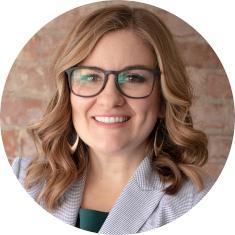
Leah Wietholter, CFE
CEO and Founder, Workman Forensics
CPE: 1.5 | Ethics CPE: No
Session Level: Intermediate
Field of Study: Specialized Knowledge
Recommended Prerequisite: Understanding of the fraud examination process and practices.
XYZ Co. was made up of three partners who all made cash investments at the company’s origination. Scott, a longtime friend of one of the partners, was recommended for hire as chief financial officer and the partners agreed. Scott wanted to be a partner in XYZ, but he was still recovering from significant financial issues and could not afford to purchase shares. As part of his employment agreement, Scott was offered the position of CFO with the opportunity to earn ownership in the company. When sweat equity is involved in partnership opportunities, it creates risks to the financial investors. In this session, attendees will participate in uncovering all of the ways Scott misappropriated partnership funds using financial transaction data found in the most common data source — bank statements. The rest of the cover-up will be revealed by connecting bank statement transactions to accounting records. By connecting the evidence supporting benefit and intent, attendees will learn how to present investigation findings. This presentation communicates the case story and casework through various media and audience-engaging activities.
You Will Learn How To:
- Determine the steps necessary to begin a fraud investigation in a business partnership
- Identify the uses of bank statement information in financial investigations
- Recognize additional information that can be obtained from banks that is vital to the evidence in a fraud investigation
- Demonstrate the importance and practical uses of accounting information as evidence of intent
Roundtable Discussion: Healthcare Fraud - 10H
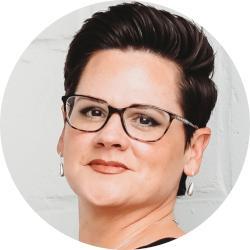
Jessica Gay, CFE
Vice President and Co-Founder, Integrity Advantage
CPE: 1.5 | Ethics CPE: No
Session Level: Intermediate
Field of Study: Specialized Knowledge
Recommended Prerequisite: Working knowledge of the healthcare industry
In this roundtable session, you will meet with your peers and discuss issues relating to healthcare fraud. The session will be limited to 100 attendees, on a first-come, first-served basis, to allow for maximum engagement and interaction. A facilitator will guide you through discussion questions, but the primary lessons will come from sharing experiences and best practices with your peers.
You Will Learn How To:
- Identify common fraud risks and emerging trends in the healthcare industry
- Compare best practices for investigating healthcare fraud
- Benchmark your healthcare institution’s anti-fraud initiatives against those at other organizations
- Discuss shared and unique experiences with other participants
Catch-22: How New Forensic Accountants Can Gain Testifying Experience - 10I
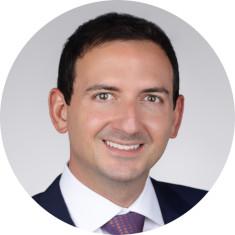
Adam Rabinowitz, CFE, CPA/CFF, CVA
Principal And Practice Leader - Forensic, Advisory And Valuation Services Kaufman Rossin & Co
CPE: 1.5 | Ethics CPE: No
Session Level: Basic
Field of Study: Personal Development
Recommended Prerequisite: None
It’s a catch-22: To testify as an expert, you need experience, but to gain experience, you need to testify. In this session, you will hear practical insights regarding critical skills and mindset for newer forensic accounting testifiers and what they can do to gain valuable testimony experience. Learn how to be an effective communicator and storyteller while navigating difficulties such as becoming comfortable in uncomfortable situations, embracing the unknown, having the courage to take risks and speak up and overcoming the fear of failure. This session will also provide insights on what more-experienced testifiers can do to transition testimony experience to their newer investigators.
You Will Learn How To:
- Recognize the challenges of testifying in court and how to overcome them
- Identify the skills necessary to be a great testifier
- Apply the principles of effective communication for personal and career development
- Improve communication skills, confidence and critical thinking
Words Matter: Tips On Interviewing To Avoid Bias - 10J/13B
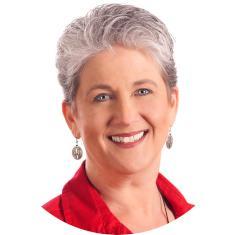
Janet McHard, CFE, CPA/CFF
Founding Partner, The McHard Firm
CPE: 1.5 | Ethics CPE: Yes
Session Level: Intermediate
Field of Study: Communications and Marketing
Recommended Prerequisite: Requires a basic understanding of fraud examination in occupational fraud cases, including a basic understanding of interview methodology.
This session will include a brief overview of interview types, highlighting interview techniques that might reflect unconscious bias. We will discuss scholarly research concerning language use and the possible effect of language choices on investigative outcomes. This course will provide tips to help CFEs combat the perception of bias in examinations. A bibliography will be provided for suggested reading and further research on this topic.
You Will Learn How To:
- Identify possible bias based on the words used throughout the interviewing process
- Modify language used in interviews to combat the perception of bias
- Formulate strategies to minimize the effect of bias in interviews and examinations
Is It A Fraud Risk, A Compliance Risk Or Both? - 11A

Gerry Zack, CFE, CPA
CEO, Society of Corporate Compliance and Ethics
CPE: 1.5 | Ethics CPE: No
Session Level: Intermediate
Field of Study: Specialized Knowledge
Recommended Prerequisite: Working knowledge of fraud risk assessments and fraud investigations; Familiarity with compliance and ethics management
Whether you are an anti-fraud professional or a compliance and ethics officer, you face a common challenge: the human tendency to bend or break the rules. Likewise, you share a common focus on identifying and managing risks, creating effective internal controls and tightening them when they fail. This session will examine the relationships between and impact of frauds and compliance and ethics violations on each other. It will share how a failure in one area can illuminate a challenge in the other and how to better integrate the disciplines of fraud prevention and compliance management.
You Will Learn How To:
- Apply techniques for integrating fraud and compliance risk assessments
- Identify and manage compliance risks that arise from fraud investigations
- Recognize fraud implications of compliance failures
OSINT Into The Future — Pack Your Skills - 11B/13J
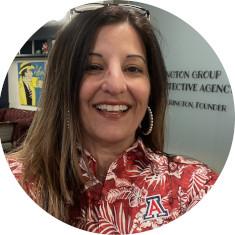
Cynthia Hetherington, CFE
CPE: 1.5 | Ethics CPE: No
Session Level: Intermediate
Field of Study: Information Technology
Recommended Prerequisite: An understanding of the basics of open-source intelligence
Many conferences now offer OSINT sessions focused on researching the internet for clues, digging in databases for answers and collating information into reports. As a profession, it’s time to pause and understand where we are heading with this amazing, dynamic science. Similar to accounting and its evolution from green-visored number cruncher into forensic scientist, we must consider the implications for our trade so it can experience similar professional growth. In doing so, we will be able to spot the challenges in the future. Technology has supported OSINT for well over a decade, and AI is used in each description of the process — whether it belongs there or not. Yet it is critical thinking and a human mindset and mentality of approach that carry us through each case. This session will identify the past successes, the present state and the future challenges of OSINT, all while carrying our best practices through the ages.
You Will Learn How To:
- Examine the recent evolution of intelligence- and evidence-gathering from social media platforms
- Recognize the value of methods ranging from straightforward (Google finds) to complicated (video and private messaging apps)
- Identify and address challenges posed by the metaverse and security-focused social media platforms
- Recall OSINT methodology
Hustlers: An Analysis Of Fraud Cases From Opposite Ends Of The Globe - 11C

Julia Patterson, Roland Winter, CFE, Ashu Sharma, CFE
Principal, PKF
CPE: 1.5 | Ethics CPE: No
Session Level: Basic
Field of Study: Specialized Knowledge
Recommended Prerequisite: None
Join Ashu Sharma and Julia Patterson, both experienced investigators from the private sector, and Roland Winter, a veteran New South Wales police detective, as they skillfully dissect two of the largest frauds perpetrated in recent history in the United Kingdom and Australia. Ashu, Julia and Roland will provide valuable insight into how these large-scale frauds occurred, the investigation process, the importance of effective stakeholder management, the impact of fraud on corporations, the profile of a typical corporate fraudster and common themes and distinctions between the Australian and U.K. jurisdictions.
You Will Learn How To:
- Identify how large-scale frauds occur
- Assess how to protect your business from fraud schemes
- Examine the process for investigating large, corporate fraud cases
- Recognize themes and distinctions between the jurisdictions in the UK and Australia
Making Yourself An Effective Leader - 11D
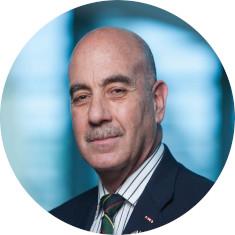
Sherman McGrew, J.D., CFE
Program Analyst, Transportation Security Administration
CPE: 1.5 | Ethics CPE: No
Session Level: Overview
Field of Study: Personal Development
Recommended Prerequisite: None
We all want to work and do our best for good leaders. Why then, are there so few good leaders? Why do bad leaders always seem to outnumber the good? Leaders are not born. Not only are they made — they make themselves. This session will place emphasis on understanding the characteristics that make good leaders and putting those characteristics into play in the real world. For decades, the presenter has been a leader in the military, police and the civilian world who has developed a leadership ethos and has been recognized as a leader and motivator of subordinates, peers and even superiors. How did this come about? The presenter will share what he has learned from his mistakes in leadership positions in two year-long combat tours in Iraq and in lethal encounters as a SWAT team police commander. The hard lessons learned in these crucibles are applicable to all fields of endeavor where one is called upon to lead others. The presenter will also poll participants for their take on the leadership traits presented and how to use the positive traits in their roles as leaders in their organizations.
You Will Learn How To:
- Recognize good and bad leadership and learn from both
- Incorporate the good aspects of leadership into your own personal situation
- Determine how not to micromanage — recognize when you are doing it and change it
- Empower your subordinates by encouraging, listening and allowing them to act on their ideas
- Recognize that being responsible means taking the heat and sharing the credit
- Examine how good leadership can make a difference and change people’s lives
Who Benefits From Sanctions? Trends In Sanctions And Beneficial Ownership, Sponsored By Thomson Reuters - 11E

Rabihah Butler, Jacob Denman
Risk, Compliance & Governance, Thomson Reuters
CPE: 1.5 | Ethics CPE: No
Session Level: Basic
Field of Study: Specialized Knowledge
Recommended Prerequisite: None
In today's climate, two things must be on the mind of every risk professional: sanctions screening and beneficial ownership. Sanctions are a timeless concern. Every entity must be careful about business and financial relationships to avoid scrutiny, sanctions and fines. This concern escalated exponentially after Russia's military actions in the Ukraine. It is now more important than ever to know your customer and avoid doing business (even indirectly) with a sanctioned entity. As the financial industry comes to grips with that higher scrutiny, FinCEN released a new rule regarding beneficial ownership which sets the course for changes in reporting obligations and the way financial institutions do business. At this time of fluidity in the financial industry, it is crucial to discuss the impact of sanctions on the industry and how beneficial ownership impacts the bottom line.
You Will Learn How To:
- Recall the specifics of the new FinCEN beneficial ownership requirements
- Differentiate between direct and indirect ownership
- Recognize the importance of proper screening and knowing the ultimate owner
- Identify tools to best protect the financial institution from potential exposure to sanctions violations
Panel: Secrets To A Successful Continuous Monitoring Program - 11F
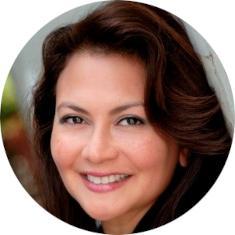
Dora Gomez, CFE, Monica Zolton, CFE, CPA, Ashok Tandon, CFE, CIA, Kenneth Pimpton, CFE, CPA, CIA
CPE: 1.5 | Ethics CPE: No
Session Level: Intermediate
Field of Study: Auditing
Recommended Prerequisite: Knowledge and experience with audit procedures and practices as it relates to fraud examination.
Internal audit is in a unique position to identify risks at the highest levels by recognizing the likelihood and impact of fraud on all areas of the organization. Audit departments can do this by developing an effective fraud continuous monitoring program. In this session, hear from experts who use continuous monitoring programs to reduce the impact of fraud and detect it sooner. We’ll discuss practical examples and variations in approaches to continuous monitoring so that you can gain insight from those who have walked this path before. Walk away from this panel with a clearer picture of how to move forward with fraud continuous monitoring at your organization.
You Will Learn How To:
- Recall the definition of fraud continuous monitoring
- Identify the riskiest fraud areas of your business that would benefit from fraud continuous monitoring reports
- Evaluate multiple methodologies for creating fraud continuous monitoring reports using data analytics
- Develop key performance indicators of your program that describe success metrics to your program stakeholders
- Recognize common challenges of developing a fraud continuous monitoring program and how to overcome them
Using Real Case Studies To Inform Your Approach To Fraud Examination - 11I

Guido van Drunen, CFE, CIA
Educator/Consultant, Breakaway Advising
CPE: 1.5 | Ethics CPE: No
Session Level: Intermediate
Field of Study: Auditing
Recommended Prerequisite: Attendees should have a basic understanding of financial statements. They should understand certain basic accounting concepts and be familiar with off-book and on-book transactions
During the course of a 30-year career, the presenter has investigated a variety of frauds, ranging from embezzlement to Foreign Corrupt Practices Act (FCPA) issues to tax evasion and financial statement fraud. This presentation will address real cases where the perpetrators were able to achieve their short-term ends. Each case will be analyzed to answer the questions: Why did they do it? How did they do it? How did they hide it? How was the fraud uncovered? What was the case outcome? Additionally, the session will cover auditing techniques and inquiry methods that will help new and experienced investigators approach situations of this nature using the prevent, detect and respond methodology. The session will conclude with tips on how to identify, detect, investigate and remediate these types of schemes and advice for working in multidisciplinary teams.
You Will Learn How To:
- Identify fraud schemes and what to look to look for when investigating them
- Formulate an approach for the investigation of these types of schemes
- Assess remediation and getting back on track from an organizational perspective
- Recognize common pitfalls and mistakes made by fraud investigators
Fraud Risk Scenario Assessment - 12A
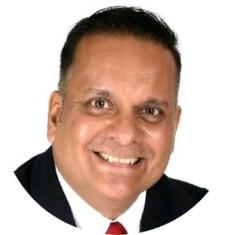
Pritesh Dattani, CFE
Global Head of Internal Audit Swissport International
CPE: 1 | Ethics CPE: No
Session Level: Basic
Field of Study: Auditing
Recommended Prerequisite: None
In this session, we will examine how to conduct a fraud risk scenario assessment in your business to explore areas vulnerable to fraud risk and plan the next steps in developing an anti-fraud program. The fraud risk scenario assessment helps management understand the risks unique to its business activities and identify gaps and weaknesses in controls. Then, learn ways to manage those risks and develop a realistic plan for targeting the right resources and controls to reduce fraud.
You Will Learn How To:
- Determine a snapshot of where fraud risk might occur using a fraud risk scenario assessment
- Employ a structure to address the potential of fraud in a proactive manner
- Recognize how to reduce exposure from fraud risk and the associated financial impact
- Supplement the internal controls environment by helping to prevent, detect and deter fraud
- Identify the effectiveness of key policies, guidelines and other controls used to minimize fraud in the workplace
Use Public Information to Your Advantage in Fraud Investigations - 12B

Natalie Lewis, CFE, CPA/CFF
Senior Vice President J.S. Held, LLC
CPE: 1 | Ethics CPE: No
Session Level: Intermediate
Field of Study: Information Technology
Recommended Prerequisite: A fundamental knowledge of fraud examinations and the investigative process.
Are you an online sleuth? Are you adept at finding that hidden gem buried in a sea of ever-increasing online information? You can be with open-source intelligence (OSINT). This session will show you how to use OSINT to gain insight into a suspect’s affiliations and relationships to help trace misappropriated funds. Through the lens of a case study, we’ll explore when it’s best to use OSINT in your investigation, how it can expand your investigation and how it aids in interviews. Come discover how to competently find publicly available information, the dos and don’ts to search effectively and tips for using what you find. With OSINT, you won’t leave any valuable information that could aid in your fraud investigation on the table.
You Will Learn How To:
- Recognize when to incorporate OSINT into your investigation
- Identify valuable free and paid sources of publicly available information
- Apply the information gained through OSINT to expand your investigation and aid in interviews
- Apply best practices and tips for using publicly available information
Keys to the Kingdom: a Vendor Fraud Case Study - 12C

Rick Roybal
Senior Vendor Auditor Matador Resources
CPE: 1 | Ethics CPE: No
Session Level: Overview
Field of Study: Auditing
Recommended Prerequisite: None
If left unchecked, vendors can defraud any organization. These fraudsters identify gaps and procedural weaknesses in an organization's internal control system. Once they get a foot in the door, they can manipulate employees and systems to illegally profit from an organization's lack of oversight. In this session, you will learn some keys to prevent the fraudsters from ever coming through the organization’s door.
You Will Learn How To:
- Recognize how fraudsters manipulate organizations’ procure-to-pay process
- Navigate the steps of how a vendor defrauded an upstream operator
- Identify essential internal controls to mitigate vendor fraud at all levels of an organization
Effectively Blowing the Whistle as Required by the CFE Code of Ethics - 12D
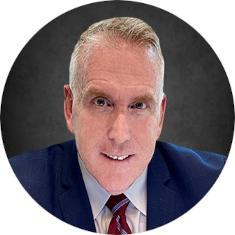
Clark Bolton, J.D., CFE, AHFI
Attorney, Morgan & Morgan
CPE: 1 | Ethics CPE: Yes
Session Level: Overview
Field of Study: Business Law
Recommended Prerequisite: None
Certified Fraud Examiners (CFEs) have an obligation, per the ACFE’s CFE Code of Professional Ethics, to always act ethically and with integrity. Thus, knowingly engaging in or helping to facilitate fraudulent activity is a violation of the code. This presentation will address the potential legal and practical implications of complying with the requirements of the ACFE’s professional codes at times when an employing entity may not want to address a suspected fraud. What is a CFE to do?
You Will Learn How To:
- Identify challenges to complying with the CFE Codes of Professional Ethics and Standards when working with an ethically compromised entity
- Recognize practical and legal options to respond when working with an ethically compromised entity while still adhering to the codes
- Coordinate and balance your obligations as a CFE and your ability to protect yourself and your career
- Determine if retaining an attorney is the right move and, if so, how to select the right attorney to handle your case
- Select and secure evidence in an ethical and effective way without putting yourself at risk of legal action
- Explore the dos and don’ts of being a whistleblower
Deepfakes and Artificial Intelligence Threats - 12E

Peter Warmka, CFE
Founder, Counterintelligence Institute, LLC
CPE: 1 | Ethics CPE: No
Session Level: Intermediate
Field of Study: Information Technology
Recommended Prerequisite: Knowledge of basic social engineering techniques utilized to conduct fraud.
Advancements in artificial intelligence (AI) will increasingly be leveraged by threat actors in creative social engineering attacks to conduct fraud. This presentation will outline various aspects of AI with emphasis on the recent evolution of deepfakes. Examples of visual and audio deepfakes will be shared and analyzed. While acknowledging the beneficial uses of this technology, the presenter will examine recent cases where deepfakes have been used to conduct multimillion-dollar fraud schemes. Measures that organizations may incorporate for the verification and authentication of critical information will also be shared and discussed.
You Will Learn How To:
- Recall advances in artificial intelligence that can be leveraged to carry out fraud schemes
- Recognize how deepfake audio technology can be combined with caller ID spoofing to conduct dangerous vishing attacks
- Identify procedures that organizations can incorporate for verification and authentication of instructions received from management and external parties
You Need a Fraud Risk Management Program; Where Should You Start? - 12F

Katherine Robinson, CFE
Enterprise Risk Manager Sterling Bank & Trust, FSB
CPE: 1 | Ethics CPE: No
Session Level: Basic
Field of Study: Management Services
Recommended Prerequisite: Knowledge or experience with fraud risk management or experience with the three lines of defense
Did you just get the green light to formalize your fraud risk management program? Great! Now what? Are you struggling with figuring out where to start? The guidance mentions having an implementation plan, but what should be in it? Do you know how to leverage your resources to do it? How are you going to integrate it with the rest of your three lines of defense? If you’re having a tough time answering these questions, you are like so many other fraud-fighting, risk management professionals who could use help getting started. This session will give you practical tactics and strategies that will take your fraud risk management program from pitch to progress.
You Will Learn How To:
- Apply the basic principles of fraud risk and fraud risk management to develop an effective structure for your program
- Examine and leverage available resources amongst the three lines of defense to effectively prioritize program implementation
- Determine how to turn small wins into meaningful milestones, depending on where you start
Courtroom Testimony — How to Prepare and Survive - 12I

Tasha Soroosh
Deputy District Attorney IV Orange County District Attorney's Office
CPE: 1 | Ethics CPE: No
Session Level: Basic
Field of Study: Specialized Knowledge
Recommended Prerequisite: None
Effective courtroom testimony is a skill that requires practice, knowledge and patience. If you are an investigator, a claims adjuster, special investigative unit, fraud examiner or law enforcement professional, you will get subpoenaed to testify at some point in your career. Knowing how to prepare and what mistakes to avoid during testimony will ensure your success and greatly reduce your anxiety. Investigating and preparing your cases to survive courtroom testimony is a skill that needs to be taught. Prepare accordingly by understanding the courtroom procedures, dynamics and limitations of the legal process.
You Will Learn How To:
- Design your fraud investigation to survive courtroom testimony
- Prepare on your own and with the prosecutor for courtroom testimony
- Apply best practices for presenting your case on direct examination
- Prepare to survive cross-examination
Ghost Story: a Case Study of a Nonprofit That Disappeared - 13A
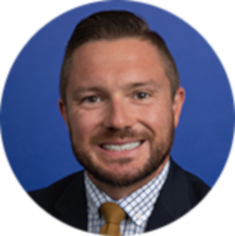
Michael Booher, CFE, CPA
Senior Investigator Tennessee Comptroller of the Treasury
CPE: 1.5 | Ethics CPE: No
Session Level: Intermediate
Field of Study: Specialized Knowledge
Recommended Prerequisite: Knowledge of investigative procedures related to fraud.
Through a case study, explore the path investigators forged to uncover the misdeeds of a former nonprofit director. By the time anyone realized anything was wrong, the subject and the nonprofit had completely disappeared. Investigators assembled evidence from open-source intelligence (OSINT) and a digital “paper” trail, eventually resulting in the subject's indictment.
You Will Learn How To:
- Apply OSINT to make progress and develop evidence in an investigation
- Determine steps that can be taken when all the paper records have vanished
- Recognize the records and other data that might provide evidence when there is no one to interview
- Revise the scope of the investigation to identify actionable items and evidence that can result in an indictment
- Apply investigative analytics to provide useful information to stakeholders to aid in decision-making
Love Lost, Money Gained, Secrets Stolen - 13C
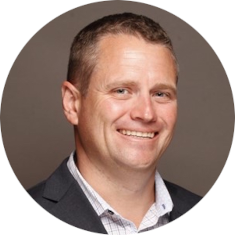
Keith Elliott, CFE
CEO, Reed Research Investigations
CPE: 1.5 | Ethics CPE: No
Session Level: Overview
Field of Study: Specialized Knowledge
Recommended Prerequisite: None
Join Keith Elliott as he navigates through some fascinating cases involving romance scams and recovery, crypto pyramid and Ponzi schemes and insider threats turned ransomware. This session will provide a detailed look at three separate case studies, how they were investigated, tools and resources that contributed to their success, and lessons learned and best practices for the inevitable next time.
You Will Learn How To:
- Identify the fraud risks and repercussions of the schemes presented
- Differentiate the methods and means for investigating varying fraud schemes
- Apply best practices for future fraud investigations
Thriving in Crisis: Leveraging Data Analytics in Fraud Investigations to Drive Business Impact, Sponsored by Case IQ - Formerly I-Sight - 13D

Meric Bloch
Strategic Advisor, Winter Investigations
CPE: 1.5 | Ethics CPE: No
Session Level: Intermediate
Field of Study: Auditing
Recommended Prerequisite: Working knowledge of fraud investigations
Fraud in organizations typically triggers crisis, during which investigations focus on addressing financial and reputational risk. These moments of crisis are opportunities for investigators to bring value beyond what is typically expected. By utilizing data analytics and taking a holistic approach to investigations, an investigator can uncover critical weaknesses in organizational controls and governance, gaps in staff processes and future vulnerabilities that may have gone unnoticed. This session is ideal for senior investigators seeking to learn the most efficient and effective practices for intake, processing and analytics for better fraud investigations. The best practices shared will help equip investigators to deliver even greater value to their organizations.
You Will Learn How To:
- Incorporate essential data needed to support the business by serving in a strategic advisory role to management
- Conduct root cause analyses to swiftly identify factors enabling fraud
- Leverage analytics to uncover vulnerabilities and protect an organization’s bottom line
Tackling Fraud In Today's Dynamic Risk Environment, Sponsored By Auditboard - 13F
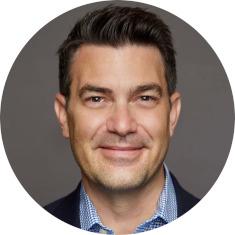
Scott Madenburg, CIA, CISA, CRMA
Senior Market Advisor, Auditboard
CPE: 1.5 | Ethics CPE: No
Session Level: Overview
Field of Study: Specialized Knowledge
Recommended Prerequisite: None
Companies around the globe are grappling with a myriad of business-critical risks such as supply chain disruption, staffing shortages, and increasing cyber threats — just to name a few. As the temptations and opportunities for fraud have increased, fraudsters have taken advantage of the situation by using ever more sophisticated tools to commit their crimes. This rising risk makes it imperative that companies and internal audit functions stay vigilant when it comes to defending against fraud.
You Will Learn How To:
- Determine why regular fraud risk assessments are a fundamental practice for internal audit teams
- Recognize how internal audit teams can take a more proactive role in the fight against fraud
- Identify why in periods of heightened volatility, it is vital for internal audit functions to constantly revisit the fraud triangle (motivation, opportunity, rationalization) to help anticipate fraud, and how this can be applied in practice
- Determine how internal audit can raise awareness around fraud and act as a trusted advisor to the board and senior management on areas that need improvement
The DOJ's Civil Cyber-Fraud Initiative And What It Means For Businesses - 13I

Anthony Hendricks, J.D.
Director, Crowe and Dunlevy
CPE: 1.5 | Ethics CPE: No
Session Level: Overview
Field of Study: Business Law
Recommended Prerequisite: None
In 2021, the Department of Justice (DOJ) announced its new Civil Cyber-Fraud Initiative. The program aims to ensure that cybersecurity representations made by government contractors and grant recipients are accurate. The initiative uses a law created during the Civil War, the False Claims Act (FCA), to root out cyber-fraud. The program is working — the initiative has already led to several high-profile, multimillion-dollar settlements. The FCA is different from other statutes because it allows people to file lawsuits on behalf of the government. The DOJ’s program relies on whistleblowers to report fraud. The presenter will outline the DOJ’s program and how it applies the FCA. Then, we will examine recent cyber-fraud cases with the context of the FCA and what it means for businesses. Finally, the presenter will offer tips for companies and cyber-professionals to protect themselves.
You Will Learn How To:
- Recognize key points of the Department of Justice’s Civil Cyber-Fraud Initiative
- Navigate how the False Claims Act is currently used to address fraud and its new application for cyber-fraud
- Apply lessons learned from two recent cyber-fraud cases
- Identify ways to reduce risk for businesses
Financial Institutions: Scams, Mules And Account Takeovers - 14C

Ashley Skaale, CFE
Director and Head of Fraud Operations, First Tech Federal Credit Union
CPE: 1.5 | Ethics CPE: No
Session Level: Intermediate
Field of Study: Specialized Knowledge
Recommended Prerequisite: Association with financial institutions as a direct employee or servicer. Knowledge of fraud detection, investigation and loss mitigation.
Financial institution fraud is ever-evolving and vastly complex. Banks and credit unions are targeted daily by increasingly sophisticated attacks and emerging risks. This session covers core concepts of understanding, preventing and investigating consumer scams, money mule accounts, account takeovers and member suspects. We will discuss best practices for prevention, investigation, case management and loss mitigation, along with nuances in regulation changes and partnering with law enforcement and industry peers. These transferrable skills and knowledge can help fraud departments educate their financial institution counterparts and consumers to help prevent, detect and mitigate fraud while supporting fraud victims and building partnerships across the anti-financial crime industry.
You Will Learn How To:
- Identify core concepts in attack patterns and fraud type classification
- Recognize emerging and historical risk trends
- Implement best practices for investigations, case management, prevention and recovery
- Recall Regulation E and its consumer liability implications
- Navigate partnering with law enforcement and industry collaboration
Fraud Horror Story — A Case Of Disconnected Customer Channels, Sponsored By Transunion - 14E

Lance Hood
Transunion
CPE: 1.5 | Ethics CPE: No
Session Level: Basic
Field of Study: Business Management and Organization
Recommended Prerequisite: None
Large enterprises understand the benefits of breaking down silos and sharing data across business units. But there is a big difference between theory and practice, and many companies find themselves unable to effectively address fraud without a unified cross-channel strategy. The lack of orchestration between call center, digital and in-person channels is exploited by fraudsters, who regularly mine call center agents for PII before committing account takeover through the digital channel. Join this session to learn how fraudsters manipulate separate customer channels to commit fraud and how device-based authentication can provide a foundation for authentication across all channels.
You Will Learn How To:
- Examine how a fraudster stole the proceeds of a life insurance account by exploiting an organization’s insufficient omnichannel strategy
- Determine how content-based authentication methods such as knowledge-based questions, one-time passcodes and voice biometrics are vulnerable to fraud
- Create a unified view of fraud identity across channels using call center activity, digital identities, geolocation attributes, device reputation and secure authentication
Back To Basics: Fighting Fraud Without Data Analytics - 14I

Linda Grotton, CFE, CIA
Director, Audit and Compliance, Maine State Housing Authority
CPE: 1.5 | Ethics CPE: No
Session Level: Overview
Field of Study: Specialized Knowledge
Recommended Prerequisite: None
Sometimes the use of data analytics is not possible when fighting fraud in small organizations or government programs. This case study illustrates how a small state, tasked with distributing $350+ million of COVID rent relief funds, identified, investigated and prevented payment of nearly $20 million of fraudulent online applications. This state's experience provides evidence that the use of tried and true "low-tech" techniques, from fraud identification to fraud investigation, can still be successful without access to system data collected by a network of partners responsible for program administration.
You Will Learn How To:
- Implement fraud prevention controls into program design
- Apply a "back to basics" commonsense approach to identifying fraud
- Educate frontline personnel and create a process to communicate suspicious activity for further investigation and enforcement action
- Explore fundamental investigation techniques
- Establish a tracking methodology for documenting and reporting results
$85 Million Laundered: A Case Study - 14J

Dwayne King, CFE
Senior Manager, Forensics AML Advisory, Grant Thornton LLP
CPE: 1.5 | Ethics CPE: No
Session Level: Basic
Field of Study: Specialized Knowledge
Recommended Prerequisite: General understanding of banking, money laundering, small business, real estate.
This session will walk through a recent fraud case in which the perpetrator successfully laundered $85 million before finally being discovered. The relative ease with which the money was laundered may shock even the most senior investigator. The presenter will examine the specific money laundering methodologies and typologies and the loopholes in the system that allowed it to continue. The presentation will also provide a quick introduction to cryptocurrencies and discuss recent episodes of cryptocurrency fraud and money laundering. Finally, we will explore the tools available to assist in cryptocurrency investigations and examine real-life case studies that used these tools in both criminal and civil investigations.
You Will Learn How To:
- Recall money laundering typologies
- Identify fraud typologies that utilize cryptocurrency
- Determine focus areas for investigations
- Navigate the challenges of cases involving asset forfeiture
Closing General Session: Conversation with a Fraudster Sponsored By Auditboard - Keynote Session

Billy McFarland, Bruce Dorris, J.D., CFE, CPA, John Gill, J.D., CFE
CPE: 1 | Ethics CPE: Yes
Session Level: Overview
Field of Study: Specialized Knowledge
Recommended Prerequisite: None
*The ACFE does not compensate convicted fraudsters. Billy McFarland was unable to travel to Seattle and spoke virtually.
Policies
CPE Credit
Please note: To be eligible for CPE credit, you must complete the final exam within one year of purchase date. You may only claim CPE credit for a course once.
ACFE Online Self-Study Courses
Features:
- 24/7 access to courses through your Internet browser
- Save time and quickly earn CPE credits with instant access, grading and printable certificate
- The flexibility to start or stop a course and pick-up right where you left off
- No additional shipping fees
Learn More about accessing your online self-study course
Learn More about online self-study courses and their features
System Requirements:
- Internet access: High-speed connection recommended
- Speakers required for video sound
 The Association of Certified Fraud Examiners, Inc. is registered with the National Association of State Boards of Accountancy (NASBA) as a sponsor of continuing professional education on the National Registry of CPE Sponsors. State boards of accountancy have final authority on the acceptance of individual courses for CPE credit. Complaints regarding registered sponsors may be submitted to the National Registry of CPE Sponsors through its website: www.nasbaregistry.org/.
The Association of Certified Fraud Examiners, Inc. is registered with the National Association of State Boards of Accountancy (NASBA) as a sponsor of continuing professional education on the National Registry of CPE Sponsors. State boards of accountancy have final authority on the acceptance of individual courses for CPE credit. Complaints regarding registered sponsors may be submitted to the National Registry of CPE Sponsors through its website: www.nasbaregistry.org/.
Ordering and Returns
Satisfaction Guarantee
If you are not 100% satisfied with any ACFE product, you may return it to us, provided it is in excellent condition, for a full refund of the item minus the cost of shipping. Toolkits and bundles may only be returned as a complete set.
Ordering & Returns Policy


